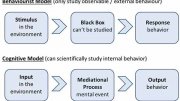Considering a Forensic Psychology Master's Program? A masters in forensic psychology degree could be tailored towards professionals already working in law enforcement, corrections, children's services, or other social services agencies, while others are designed for students just entering the field. Depending on their backgrounds and future plans, students should pick master's programs that best suit their needs.
There are two primary tracks in forensic psychology masters programs: licensure and non-licensure. While some forensic psychology master's programs prepare students for state-licensure and certification, others do not. In addition, some forensic psychology master's programs prepare students for entry into PhD programs while others do not. Therefore, it is important to understand your future goals related to becoming a forensic psychologist prior to enrolling in a program, so that you can use your program to prepare for your career or future training.
High Employment Areas for Master's Forensic Psychologists

Forensic Psychology Masters Program Options
Some forensic psychology master's programs prepare students for entry into PhD programs while others do not. Therefore, it is important to understand your future goals related to becoming a forensic psychologist prior to enrolling in a program, so that you can use your program to prepare for your career or future training.
Most masters programs require students to complete a core curriculum of courses (again, that emphasize both psychology and law) and a series of electives that allow them to focus and specialize. Some areas upon which students choose to focus include corrections, law enforcement, sexual offense, and children's services.
Most programs require students to complete an applied research project, dissertation, or thesis project by the ends of their programs. Such projects allow students to complete master's programs (that includes classroom-time, professional training, and research) and to prepare for PhD programs.
Schools typically require students in forensic psychology master's programs to complete 32 to 45 credits of coursework and three to six credits of a supervised training and/or research project. It typically takes two to three years to earn a master's in forensic psychology, and five to seven years to complete a PhD.
Tips for Applying for a Forensic Psychology Master's Program
If you have decided to earn a master's in forensic psychology, you will have to put together a great application. Most programs will require you to have a high GRE score, a good GPA, and some experience in the field or with research. They may also prefer that you have a bachelor's degree in psychology or another closely related field.
To submit the best possible application, talk to the director of the program to which you want to apply to
determine what they are looking for in an applicant. Most schools have different preferences and expectations; determining what they are and customizing your application can help you shine.
Source: www.gradschools.com
You might also like:






















 Alfred G. "Alfred" Packer (January 21, 1842 – April 23, 1907) was an American prospector who was accused of cannibalism during the winter of 1873-1874. First tried for murder, Packer was eventually sentenced to 40 years in prison after being convicted of...
Alfred G. "Alfred" Packer (January 21, 1842 – April 23, 1907) was an American prospector who was accused of cannibalism during the winter of 1873-1874. First tried for murder, Packer was eventually sentenced to 40 years in prison after being convicted of...
The top schools for forensic science include: University of Mississippi, University of Central Florida, and Loyola University.
Last year at G.W.U. the average GRE scores for admitted students were 670 verbal, 720 quantitative, 5.1 analytic. !